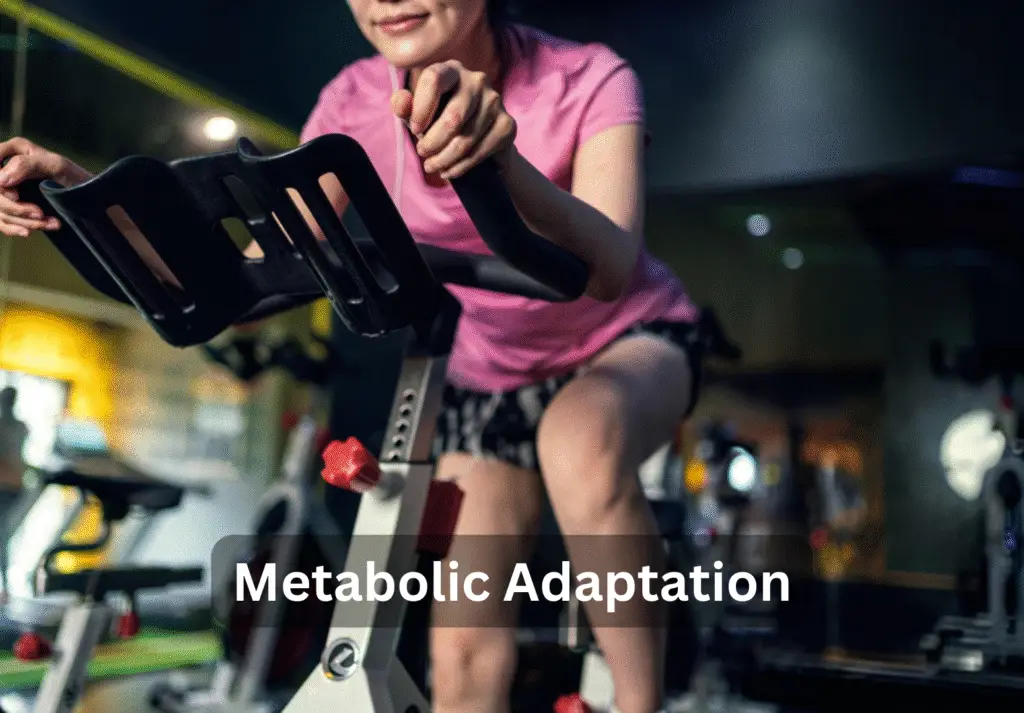Some of the links in this post might be affiliate links. This means that if you click on the link and make a purchase, I’ll receive a small commission – at no extra cost for you, which helps me cover the costs for this blog
Table of Contents
Metabolism is often talked about in the context of weight loss, energy, and fitness—but it’s so much more than just a buzzword. It’s the engine behind how your body turns food into fuel, repairs itself, and maintains balance.

If you’ve ever wondered how to naturally support a fast metabolism, and we’ll explore the science of metabolism, what affects it, and natural ways to boost your metabolism using food, movement, hydration, and a little help from modern tools.
1. What Is Metabolism?
Metabolism refers to all the chemical processes your body uses to convert what you eat and drink into energy. That includes digestion, nutrient absorption, and cellular energy production. Your metabolism rate is largely determined by your Basal Metabolic Rate (BMR) (1) . The calories that your body burns at rest to keep you alive. It’s also influenced by factors like physical activity, sleep, stress, and genetics.
Your body is doing all kinds of work to keep you going:
- Protein metabolism helps repair tissues and build muscle
- Vitamin B metabolism keeps your energy levels up and supports brain function
- Nitrogen metabolism helps cells grow and heal
- Water metabolism regulates temperature and keeps your organs hydrated and happy
- Metabolism and digestion are directly connected if your digestion’s off, your metabolism probably is too.
2. Factors That Influence Your Metabolism
Metabolism is a complex and dynamic process, and several internal and external factors can influence how efficiently your body burns calories. Understanding these variables can help you make informed decisions about how to support a fast metabolism and optimize your overall health (2).

- Age and Gender: As the body ages, metabolic processes naturally slows down. This decline in metabolism rate is due to factors such as hormonal changes, decreased muscle mass, and reduced physical activity. (3) Additionally, gender plays a vital role, on an average, men tend to have a higher basal metabolic rate (BMR) than women due to greater muscle mass and lower body fat percentage.
- Muscle Mass and Body Composition: Muscle is metabolically active tissue, which means it requires more energy to maintain than fat. Increasing lean muscle mass through resistance training can significantly boost protein metabolism and support a more efficient calorie burn, even at rest (4).
- Physical Activity: Regular exercise can increase total energy expenditure and can enhance metabolism and digestion. (5) High-Intensity Interval Training (HIIT) and strength training are particularly effective for promoting a fast metabolism, as they raise the metabolic rate during and after workouts.
- Genetics and Hormones: Genetic factors influence individual metabolism rates, including how efficiently the body processes nutrients and burns energy. Hormones such as thyroid hormone, insulin, and cortisol also play a critical role. Imbalances can contribute to a slower or more irregular metabolism.
- Metabolic Flexibility and Dual Efficient Metabolism: Some people have a dual efficient metabolism, which means their bodies can easily transition between burning carbs and fat for energy. This adaptability is a sign of metabolic health and flexibility, and it is linked to higher energy levels, fat oxidation, and glucose regulation. To boost you dual efficient metabolism follow these 5 day diet plan (6).
3. Understanding Metabolic Adaptation
One of the most challenging experiences for many people attempting to lose weight or improve their health is reaching a turning point, which occurs when the scale stops moving despite constant effort. This is frequently a result of metabolic adaptation.
What Is Metabolic Adaptation?
Metabolic adaptation (MA) refers to a cluster of adaptations to weight loss that hinder further weight loss and promote weight regain (7)(8). Metabolic adaptation is the body’s built-in survival mechanism that ensures it has enough energy to perform important tasks and helps it live during times of food scarcity or famine. In an effort to conserve energy, the body reduces its metabolism rate, making it more difficult to continue losing weight.
When you consistently eat less than your body needs, several things can happen:
- Resting energy expenditure decreases
- Hormonal shifts suppress thyroid function and slow protein metabolism
- Vitamin B metabolism and other nutrient processes become less efficient
- The body prioritizes essential functions and slows non-essential activity
This protective mechanism is one reason many diets fail over time.
How to Handle It
How to fix it or prevent metabolic adaptation, it’s essential to support your body with adequate calories, balanced diet, and rest. Implementing a metabolism diet that includes metabolism boosting foods—such as lean proteins, healthy fats, and fiber-rich carbs can make real difference.
4. How Caffeine and Coffee Affect Your Metabolism

Caffeine is one of the most widely consumed natural stimulants in the world, and it has a well-documented impact on metabolism. (9) Caffeine increases resting metabolic rate (RMR), the rate at which your body breaks down food while your body is at rest. Your RMR is one way to measure your metabolism, including how many calories you burn when you’re not at rest (energy expenditure).
Caffeine and Metabolism: The Science
Research shows that caffeine and metabolism are directly linked. Caffeine stimulates the release of adrenaline, which signals the body to release stored fat into the bloodstream for energy. This increases thermogenesis the process of heat production in the body—thereby slightly raising your metabolism rate.
5. Hydration and Metabolism

Water is essential for every metabolic activity in the body, yet it is sometimes forgotten when discussing how to maintain a healthy metabolism. Proper hydration regulates body temperature, transports nutrients, aids digestion, and promotes cellular energy generation.
Water and Metabolism
Even mild dehydration can reduce physical and mental performance and slow down your metabolism rate. Water is essential for the chemical reactions involved in protein metabolism, vitamin B metabolism, and nitrogen metabolism all there contribute to energy balance. (10) Drinking water can temporarily increase metabolism rate by up to 30% for about an hour. This effect, known as water-induced thermogenesis.
Best Practices for Hydration and Metabolic Support
- Drink a glass of water first thing in the morning to jumpstart digestion and energy use.
- Consider herbal teas or electrolyte-rich beverages for variety without added sugar, that can actually burns calories.
- Combine water intake with metabolism enhancer foods like citrus fruits, leafy greens, and lean proteins
6. Top Foods That Boost Metabolism Naturally
Nutrition plays a powerful role in regulating your metabolism. Certain foods contain properties that help stimulate thermogenesis, improve digestion, support hormonal balance, and enhance energy expenditure. Incorporating these metabolism boosting foods into your daily routine can support a fast metabolism and overall metabolic health.
Best Foods to Boost Metabolism are:
- Protein-Rich Foods: Eat Chicken, turkey, eggs, tofu, legumes, and Greek yogurt these are high in protein. (11) High in thermic effect of food (TEF), which increases protein metabolism. This helps preserve and build muscle mass also critical for maintaining a high metabolism rate.
- Foods Rich in B Vitamins: Eat Leafy greens, whole grains, beef liver, tuna, and eggs. These foods support (12) vitamin B metabolism, which aids energy production and brain function.
- Spicy Foods (Chili Peppers, Cayenne): It Contain capsaicin, which stimulates thermogenesis and fat oxidation which is popular in many metabolic diet plans as natural metabolism enhancers (13).
- Green Tea and Coffee: Green tea is high in catechins and caffeine, as it promotes fat burning and increased energy expenditure. Coffee metabolism benefits include increased alertness, appetite suppression, and enhanced exercise performance. When it combines well with foods that speed up metabolism, especially lean proteins or healthy fats (14).
- High-Fiber Foods: Eat vegetables, fruits, legumes, and whole grains. It Improve metabolism and digestion while supporting gut health (15).
- Water-Rich Foods: Eat cucumbers, watermelon, celery, and citrus fruits it support water metabolism, improve hydration, and assist with nutrient transport.
- Iron- and Zinc-Rich Foods: Eat Shellfish, red meat, seeds, and lentils these are vital for thyroid function and nitrogen metabolism, both essential to a well-functioning metabolism.

Metainfluencer Foods and the Lumen Device Trend
A new class of “metainfluencer foods” is (16) emerging the Lumen gadget, for example, promotes not only diets that improve metabolism but also tech-based metabolic surveillance. The Lumen metabolism system measures your breath to help determine whether you’re burning fat or carbs, allowing you to optimize food choices in real time. This device may help improve metabolic flexibility especially for those aiming for a dual efficient metabolism.

7. How to Create a Metabolism-Friendly Lifestyle
A healthy metabolism isn’t built on quick fixes it’s the result of consistent, sustainable habits. While metabolism booster pills and fashionable diets may promise fast results your everyday habits have a far longer-term impact on your metabolism rate and energy balance.
- Prioritize Protein at Every Meal
- Stay Consistently Active
- Drink More Water
- Don’t Skip Meals or Severely Restrict Calories
- Manage Stress and Get Adequate Sleep
- Monitor and Adapt with Tools Like the Lumen Device
- Include Foods That Stimulate and Enhance Metabolism
8. Natural Metabolism Boosters (Especially for Women)

While the fundamentals of metabolism apply to everyone, women frequently confront particular problems, such as hormonal changes, thyroid abnormalities, and age-related muscle loss, which can affect metabolism rate and energy balance. Fortunately, some natural procedures and substances can effectively enhance metabolisms boosters for women.
- Strength Training and Resistance Workouts: Women naturally tend to have less muscle mass than men, which can lead to a slower metabolism rate especially after age 30. Resistance training helps them preserve and build lean muscle, which increases protein metabolism and supports a fast metabolism over time.
- Iron and B Vitamin Support: Menstruation can lead to iron depletion, and low iron levels may hinder vitamin B metabolism and oxygen transport as both are critical for metabolic efficiency. Eating iron-rich foods like spinach, red meat, lentils and B-complex vitamins supports energy and fat oxidation.
- Adaptogenic Herbs and Hormonal Balance: Ashwagandha, rhodiola, and maca root are commonly used adaptogens that may help manage cortisol levels and improve resilience to stress. They are important factor in metabolism and digestion. Chronic stress can suppress metabolism and promote fat storage, particularly in women.
- Natural Foods That Boost Metabolism: Women can focus on nutrient-dense foods that increase your metabolism while being mindful of hormone balance and gut health. Some of the best choices include:
- Wild-caught salmon and flaxseed for omega-3 support.
- Eggs, beans, and fermented foods for gut and protein metabolism.
- Leafy greens and cruciferous vegetables for detoxification.



